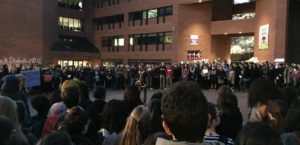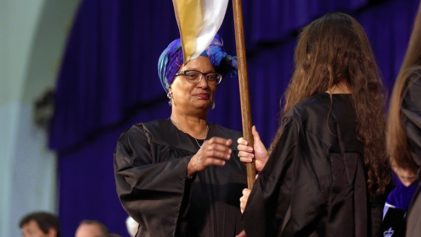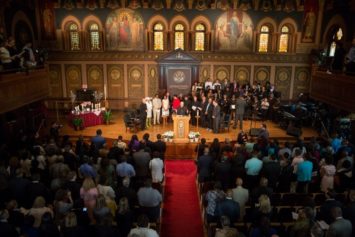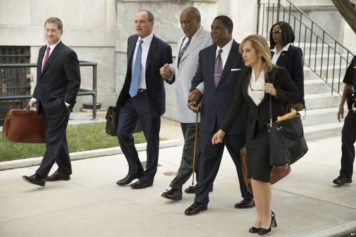Georgetown University is taking steps to address some uncomfortable aspects of its past. Georgetown students have pressured the university to acknowledge it was built on the back of slavery. According to reports, Georgetown recently decided to rename Mulledy Hall and McSherry Hall, which are both named after owners of enslaved Africans.
Mulledy Hall is named after former Georgetown president Thomas F. Mulledy, who sold enslaved Africans to pay off the university’s debts. McSherry Hall is named after William McSherry, also a former Georgetown president, who advised on the sale of enslaved Africans and also sold enslaved Africans himself. The buildings will be renamed Freedom Hall and Remembrance Hall.
The Washington Post said that in 1838, 272 enslaved Africans were sold to a Louisiana plantation owner to settle the university’s debts. The enslaved Africans were owned by the Society of Jesus in Maryland. The sale was controversial at the time because some priests thought the enslaved Africans should have been given their freedom. Also, Mulledy ignored church instructions to keep the enslaved Africans’ families together. Georgetown was founded in 1634 by John Carroll, America’s first Catholic bishop.
According to ThinkProgress, this is just the first step in plans to address Georgetown’s racial past. The Working Group on Slavery, Memory and Reconciliation, made up of students, faculty members and administrators, is continuing to look into the university’s links to slavery. The group is also planning a symposium on April 16, Emancipation Day, which is the date when slavery was outlawed in Washington D.C.
In a letter emailed to the Georgetown community Saturday evening, President John J. DeGioia said he authorized the name change based on the Working Group on Slavery, Memory and Reconciliation’s recommendations.
“As a university,” DeGioia wrote, “we are a place where conversations are convened and dialogue is encouraged, even on topics that may be difficult.”
Queen Adesuyi, a Georgetown student who is originally from the Bronx, told The Washington Post, the university has to acknowledge its past, no matter how painful or embarrassing it might be.
“We recognized we can’t be complacent anymore,” said Adesuyi. “The fact that the sale [of slaves] helped Georgetown to be the prestigious school it is now is an important part of our history that’s important to recognize. It’s a history not being told.”
Adesuyi added that Georgetown students used the momentum from recent protests by Black students around the country to force the university to take action. The Washington Post reported about 50 people staged a sit-in at DeGioia’s office on Friday to protest the two building’s names.
According to Craig Steven Wilder, author of Ebony & Ivy, Georgetown is not the only university to have ties to slavery. Wilder told The Washington Post several other colleges, including Dartmouth and Harvard, had college presidents who owned enslaved Africans. Enslaved Africans also served students and faculty members, he said.



